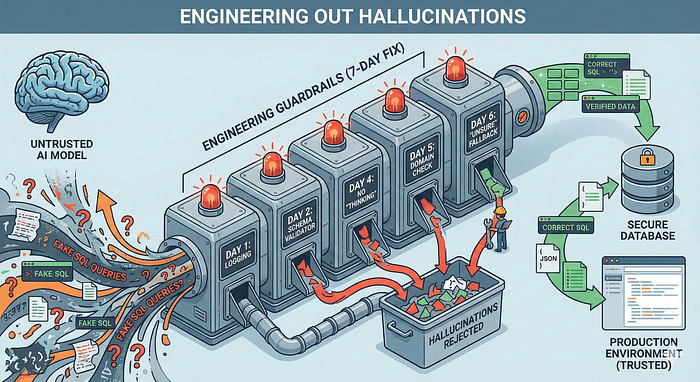Introduction to Enterprise AI Transformation
The push toward enterprise AI transformation gained significant momentum at the recent Huawei Cloud Industry Summit in Shanghai. The event, held during Huawei Connect 2025, brought together hundreds of senior executives from government, finance, manufacturing, retail, and other industries to discuss practical AI implementation. Huawei Cloud’s approach centers on addressing a fundamental challenge that many organisations face: moving beyond AI experimentation to practical, value-generating applications.
Proven Results Across Manufacturing and Public Services
The summit highlighted several implementations that demonstrate measurable business impact. In manufacturing, Shanghai Baowu Steel deployed the Huawei Cloud Pangu model to improve hot rolling production predictions, achieving a 5% accuracy increase that translated to CNY90 million in additional annual revenue per production line. This example illustrates how enterprise AI transformation in traditional industries can yield quantifiable returns. The public sector has also seen notable applications. The National Library of Chile utilised Huawei Cloud’s AI Compute Service to develop Latin America’s first bilingual virtual human in English and Spanish, providing visitors with cultural tours and heritage interpretation services.
Four Pillars of Industry Intelligence
Joy Huang, Vice President of Huawei Cloud, outlined the company’s innovation framework during his keynote speech titled “Accelerating Intelligence with Huawei Cloud.” The strategy focuses on four key areas: cloud architecture, methods and processes, solutions, and operational excellence. The cloud architecture component includes Huawei Cloud Stack for hybrid cloud infrastructure, CloudPond for edge computing deployments, and CloudRobo, an embodied AI platform designed to enhance robotic intelligence and decision-making capabilities.
Comprehensive Solution Portfolio
The summit also marked the official launch of 12 solutions tailored for global markets, including the Government Data Enablement Solution, Tongdun’s Financial Risk Management Solution, and Techsun Social Hub.AI Solution. For the Chinese market specifically, Huawei Cloud introduced additional offerings such as the Game Deployment Solution, CloudVeo Intelligent Driving Cloud Service, and AI Pharmaceutical Research Solution. The breadth of these solutions reflects the varied requirements of different sectors undergoing enterprise AI transformation.
Market Traction and Customer Adoption
Huawei Cloud reported significant adoption numbers, noting that over 500 financial institutions, 500 retail and e-commerce companies, and 90% of Chinese Internet companies have selected the platform. The company’s operational excellence team has collaborated with customers on over 200 projects in the past two years, focusing on building resilient, intelligent business operations. Several clients shared their experiences at the summit, discussing progress in unmanned vehicles, autonomous operation, and cloud migration.
The Road Ahead for Industry Intelligence
The summit underscored a broader trend in enterprise computing: the shift from general-purpose AI tools to industry-specific solutions that address particular business challenges. As organisations move beyond proof-of-concept projects, the focus has turned to integration, governance, and measurable outcomes. Huawei Cloud’s emphasis on methodologies and operational excellence alongside technology platforms reflects this maturation. The company’s commitment to diving deeper into industries and innovating across architecture, processes, and tools suggests a long-term strategy focused on sustained enterprise AI transformation rather than short-term technology trends.
Conclusion
The Huawei Cloud Industry Summit demonstrated the potential of enterprise AI transformation to drive business value across various sectors. With its comprehensive solution portfolio, focus on operational excellence, and commitment to industry-specific innovation, Huawei Cloud is well-positioned to support organisations in their AI journeys. As the enterprise computing landscape continues to evolve, the emphasis on practical applications, measurable outcomes, and sustained transformation will remain crucial for businesses seeking to harness the power of AI.
FAQs
Q: What is enterprise AI transformation?
A: Enterprise AI transformation refers to the process of integrating artificial intelligence into an organisation’s operations to drive business value and improve efficiency.
Q: What are the four pillars of industry intelligence outlined by Huawei Cloud?
A: The four pillars are cloud architecture, methods and processes, solutions, and operational excellence.
Q: What is the Huawei Cloud Pangu model?
A: The Huawei Cloud Pangu model is an AI platform designed to enhance predictive capabilities and decision-making in various industries.
Q: What is the significance of the Huawei Cloud Industry Summit?
A: The summit highlights the potential of enterprise AI transformation and showcases Huawei Cloud’s solutions and strategies for supporting organisations in their AI journeys.
Q: What is the focus of Huawei Cloud’s innovation framework?
A: The focus is on accelerating intelligence through cloud architecture, methods and processes, solutions, and operational excellence.











